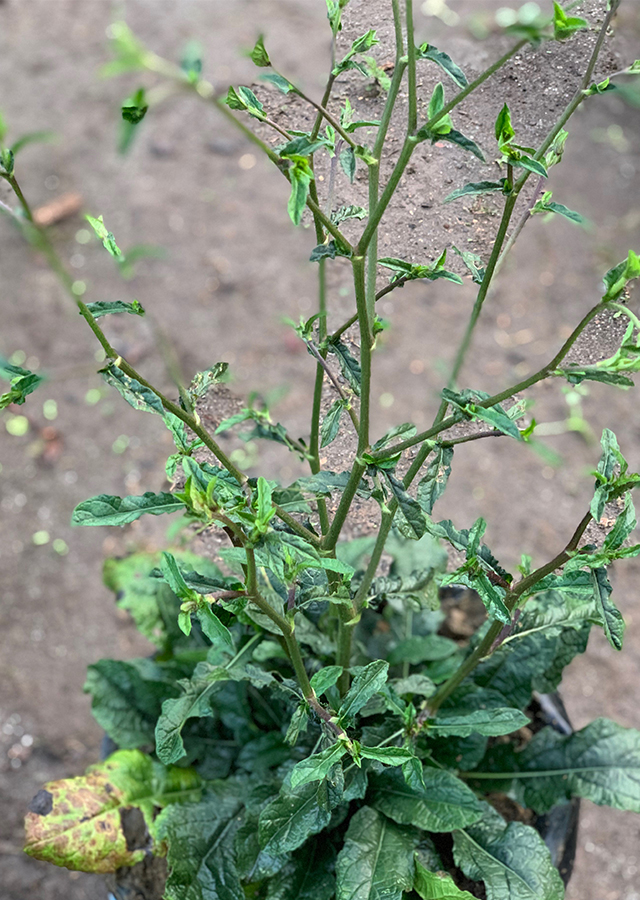Traditional Herbs from Elephantopus scaber
fever
- Boil 2 tapak liman leaves in 2 glasses of water until it boils and the water is reduced by half.
- Cool the concoction and strain.
- Drink 1 glass a day.
stomach_bloat
- Wash clean 60 g tapak liman stems.
- Boil in enough water.
- Divide the boiled water into 2 drinks.
What is Elephantopus scaber Looks like??



Parts of Elephantopus scaber that could be used
- Leaves
- Flowers
- Roots
- Twigs
Elephantopus scaber Distribution
Tapak Liman is a plant native to tropical America and spread across tropical Africa, Asia and Australia. In Java, this plant grows wild along with other herbaceous plants and has long been used as a medicinal plant because of the compounds and nutrients it contains, but it also has side effects such as allergies and stroke. The young leaves can be cooked as a vegetable.Agroecology of Elephantopus scaber
Grows well at altitudes up to 1,500 m above sea level, with temperatures of 15-40 °C. Likes vertisol or grumosol soil types, loamy or clayey texture, soil pH 5.8-6.7. Generally grows wild in grass fields and embankments.
Morphology of Elephantopus scaber
- Spear-shaped roots, very strong roots.
- Stem\u00a0cylindrical, erect, hard, dark green, smooth-haired surface, white.
- Leaf\u00a0single dark green, slightly bluish, 35 cm long, 7 wide cm, notched edges for young plants, on plants with tall stems, smaller leaves, flat edges.
- Compound flowers, collected in a protected head with 3 cup-like leaves.
- Fruit like a white tube, 1 cm long, at the end there is white hair.
Cultivation of Elephantopus scaber
- Propagation by seeds and saplings.
- Plant the seeds in polybags, when the seeds start to get big, transfer them to their respective pots.
- After the height is around 10 cm or more, plant them in the ground or a permanent place.
Elephantopus scaber, more details :
Chemical Content of Elephantopus scaberElepahantopin, deoxyelephantopin, stigmasterol, flavonoids, epiprielinol, lupeol, stigmasterin, triacontan-1-ol, sesquiterpenes, phenolic acids, cyclosativene.
Benefits of Elephantopus scaber
Antidote for snake venom, antibacterial (medicine for eczema, diarrhea, canker sores, coughs), anticancer, anti-inflammatory, antifungal, fever reducing (antipyretic), urinary laxative, hepatitis, treating flatulence.
Simplisia of Elephantopus scaber
- Choose fresh and undamaged leaves. Wash the leaves with clean running water, drain and thinly slice.
- Dry in the sun using a dark cloth.
- Sort dry from unwanted foreign materials.
- Store the simplicia in a container or an airtight plastic bag, at room temperature and out of direct sunlight.
Another Facts for Elephantopus scaber :
Synonym of Elephantopus scaberElephantopus sinuatus Zoll. & Moritzi, Asterocephalus cochinchinensis Spreng., Scabiosa cochinchinensis Lour.
Habitus of Elephantopus scaber
Herb. Annual herb, up to 80 cm high
Habitat of Elephantopus scaber
- Forest
- Roadside
- Grassland
No comments:
Post a Comment